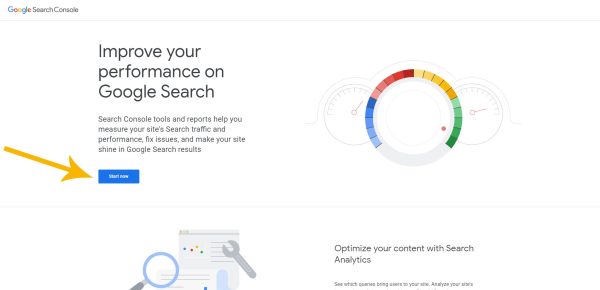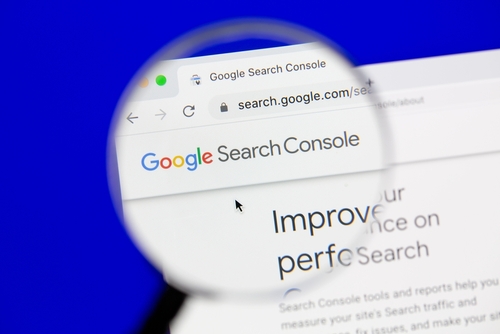Are Your Pages Being Crawled and Indexed By Google?
Understanding how Google processes and displays web content is essential for any website owner or digital marketer. Two critical concepts in this process are crawling and indexing. While often used interchangeably, these terms refer to distinct stages in Google’s mechanism for discovering, processing, and ranking web pages.
If you’ve been staying up to date with SEO news, you know that Google Search Console recently had a delay in data reporting, up to 100 hours for some websites!
At Now Media Group, Google Search Console is an important tool our marketers use to collect data and refine strategies. If you’re looking for a digital marketing company, contact our team today! Call us at (858) 333-8950 for your free strategy session.
What Is Google Search Console?
Google Search Console (GSC) is a powerful tool that provides insights into how Google views your website. It allows you to monitor, maintain, and troubleshoot your site’s presence in Google Search results. Among its many features, GSC provides detailed reports on crawling and indexing, helping you understand how Google interacts with your site.

What Is Crawling?
Crawling is the first step in the process by which search engines discover new and updated content on the web. It involves the use of automated bots, known as crawlers or spiders, which traverse the internet to find web pages.
How Crawling Works
- Crawl Budget: Google allocates a specific amount of time and resources to crawling each site, known as the crawl budget. Factors influencing the crawl budget include the website’s size, health, and popularity.
- Crawl Frequency: The frequency of crawling depends on the frequency of content updates and the site’s importance. High-traffic sites with frequent updates are crawled more often.
- Crawl Efficiency: Efficiency is crucial. Google aims to crawl pages quickly without overloading the server. Efficient crawling ensures that all important pages are discovered without putting unnecessary strain on the website’s resources.
Tools and Reports in GSC for Crawling
- Crawl Stats Report: This report provides data on the number of pages crawled per day, the time spent downloading pages, and the size of the pages downloaded. It helps you understand the crawl activity on your site.
- URL Inspection Tool: This tool allows you to check the status of a specific URL. It shows if the URL is in Google’s index, if it has been crawled, and any issues detected during crawling.
What Is Indexing?
Indexing is the process of adding web pages to Google’s database after they have been crawled. Once a page is indexed, it becomes eligible to appear in Google Search results.
How Indexing Works
- Content Analysis: During indexing, Google analyzes the content of the page, including text, images, and other media. It looks at the page structure, metadata, and other on-page elements to understand what the page is about.
- Relevance and Quality: Google assesses the relevance and quality of the content. Factors such as keyword usage, content uniqueness, and user engagement metrics influence whether and how the page will be indexed.
- Storage: Indexed pages are stored in Google’s vast database. When users perform searches, Google retrieves relevant pages from this database to display in the search results.
Tools and Reports in GSC for Indexing
- Coverage Report: This report shows which pages on your site have been indexed and which have not. It provides reasons for any indexing issues, such as crawl errors, server errors, or content issues.
- Sitemaps Report: Submitting a sitemap helps Google discover your pages more efficiently. The Sitemaps report shows the status of your submitted sitemaps and any errors encountered.

Common Issues with Crawling and Indexing
Crawling Issues
- Crawl Errors: These include DNS errors, server errors, and robots.txt fetch errors. These prevent Googlebot from accessing your pages.
- Crawl Budget Waste: If your site has many low-quality or duplicate pages, the crawl budget may be wasted on these pages, leaving important pages uncrawled.
Indexing Issues
- Noindex Tags: Pages with a noindex tag in the meta robots tag or HTTP header will not be indexed.
- Duplicate Content: If Google detects duplicate content, it may choose not to index all duplicates, preferring the most relevant version.
- Low-Quality Content: Pages with thin, low-quality content may be crawled but not indexed if they don’t provide value to users.
If you’re having issues getting your pages indexed and discovered on Google, get in touch with Now Media Group!
Using GSC to Address Issues
- Crawl Stats and URL Inspection: Identify and fix crawl errors, optimize crawl budget usage, and ensure important pages are accessible.
- Coverage and Sitemaps Reports: Detect and resolve indexing issues by ensuring critical pages are included in sitemaps, avoiding noindex tags on important pages, and improving content quality.
Best Practices for Optimizing Crawling and Indexing
Enhancing Crawl Efficiency
- Optimize Robots.txt: Ensure your robots.txt file is correctly configured to allow Googlebot to access important sections of your site while blocking low-priority areas.
- Improve Site Structure: A clear, logical site structure with internal links helps Googlebot navigate your site more efficiently.
- Regular Content Updates: Frequently updating your content encourages more frequent crawling.
Boosting Indexing Potential
- High-Quality Content: Create valuable, unique content that provides real value to users. This increases the likelihood of indexing.
- Use Sitemaps: Submit sitemaps to Google Search Console to help Google discover your pages more effectively.
- Avoid Duplicate Content: Use canonical tags to specify the preferred version of a page and avoid indexing duplicate content.
Monitoring and Maintenance
- Regularly Check GSC Reports: Use the Crawl Stats, Coverage, and Sitemaps reports to monitor your site’s crawling and indexing status.
- Fix Errors Promptly: Address any crawl errors, indexing issues, or content problems as soon as they are detected.
- Stay Updated: Keep up with Google’s updates and best practices to ensure your site remains optimized for crawling and indexing.

Get Your Page Indexed and Discovered on Google with Now Media Group!
Are you ready to achieve better search results and elevate your SEO strategy? Our digital marketing company offers a full suite of services, from local SEO to social media marketing, we’ve got what you need to succeed online.
Contact our team today to get started. Call (858) 333-8950 to schedule your free strategy session!
